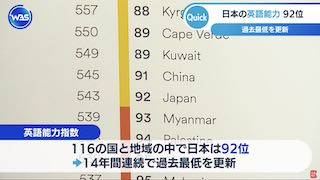Apr 27 (Japan Times) - The daily news reports on the COVID-19 pandemic tell us how many people have been newly infected, but less attention seems to be paid to how many lives have been lost. Since the ultimate purpose of the fight against the novel coronavirus is to save lives, it is crucial to take a closer look at the number of fatalities.
According to World Health Organization data, the ratio of COVID-19 deaths to the total national population varies a great deal from country to country. As of April 13, the number of deaths per 100 million people is 81 in Japan, 240 in China, 6,251 in the United States, 22,216 in France and 32,894 in Italy. Japan’s figure is conspicuously low — one-third of the reported number in China, one-eightieth of the U.S. and one-four hundredth of Italy.
This shows that at least at present, Japan is controlling the situation relatively better than those countries. It has been pointed out that people’s sense of crisis over the pandemic in Japan is not as high as that in the U.S. and European countries, and that may be explained by the relatively low rate of death here.
From an optimist's viewpoint, we can say the situation is proof of the excellent hygiene and nutrition environment in Japan, which the nation should be proud of. But a different perspective tells us that Japan may soon experience the same dire situation as the one now confronting Western countries.
In fact, the number of COVID-19 fatalities has begun to pick up in Germany, where hygiene conditions are believed to be as good as in Japan. The number of deaths in Japan has been growing day by day. The question is how far we can keep the rate of COVID-19 death low in this country, and that rests heavily on every one of us maintaining a healthy sense of crisis.
A society's weaknesses tend to be laid bare in times of crisis, and the COVID-19 crisis has exposed fundamental problems in Japanese society.
The biggest point is that our legal system is not prepared for an emergency situation like war or pandemic.
In a televised speech March 16, French President Emmanuel Macron invoked what he said is a war against the coronavirus and imposed a stay-at-home order across his country. U.S. President Donald Trump utilized the Defense Production Act, which was enacted 70 years ago during the Korean War, and ordered private sector companies to produce ventilators and other medical equipment.
Many countries have a system to introduce strong government control of the economy in wartime. But Japan’s system is based on the assumption that the nation will not engage in war. That is why all the government can do is request people to stay at home and not go to their workplace.
Another weakness laid bare by an emergency like the COVID-19 pandemic is Japan's lagging response to the digital shift that is taking place through much of the world. It is clear that remote medical examinations and care, as well as remote work at home, are needed in the fight against COVID-19. But in Japan, die-hard opposition from vested interest groups has resulted in banning or restricting such measures using digital technology, leaving the nation lagging far behind other countries. And people are now paying the price.















